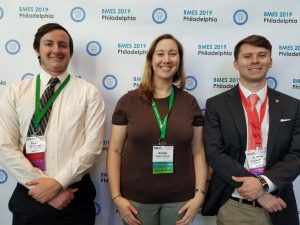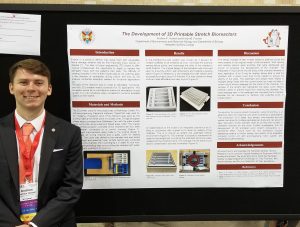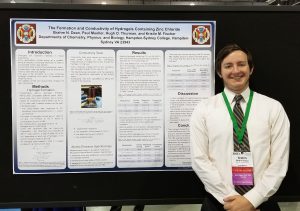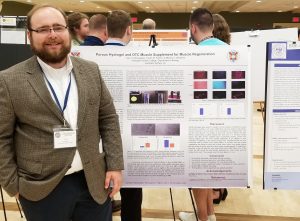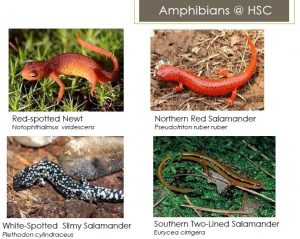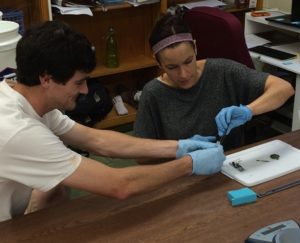Elliott Associate Professor of Biology Dr. Kristian M. Hargadon ’01 has recently published research on the function of the FOXC2 transcription factor in melanoma in Frontiers in Oncology, one of the most cited and highly ranked journals in the field of Oncology. The article, entitled “RNA-seq Analysis of Wild-Type vs. FOXC2-Deficient Melanoma Cells Reveals a Role for the FOXC2 Transcription Factor in the Regulation of Multiple Oncogenic Pathways,” employs genomic and bioinformatic analyses of a novel CRISPR-Cas9 gene-edited melanoma cell line engineered by Dr. Hargadon at Hampden-Sydney College. The study provides important mechanistic insights into FOXC2’s role in the regulation of melanoma cell proliferation, invasion, metabolism, drug resistance, and immune escape, all of which are key hallmarks of cancer progression. Together with previous research published by Dr. Hargadon in Cancer Genomics and Proteomics in late 2019, these data highlight the FOXC2 transcription factor as a major oncogenic driver in melanoma.
Of note, former H-SC student Corey J. Williams ’19 is a co-author on the Frontiers in Oncology article with Dr. Hargadon. Corey is currently enrolled as a medical student at the VCU School of Medicine. Dr. Hargadon, Corey, and pathologists at VCU are currently planning collaborative studies that will extend the in vitro and animal studies at H-SC into a clinical setting. This work will involve analyses of FOXC2 expression in melanoma cells from patient biopsies and will assess whether FOXC2 is a useful prognostic factor for predicting tumor progression and survival in melanoma patients. Such information may ultimately be useful in determining optimal treatment strategies for patients based on FOXC2 expression levels in their tumors at the time of diagnosis.
Dr. Hargadon’s Frontiers in Oncology article can be accessed at:
https://www.frontiersin.org/articles/10.3389/fonc.2020.00267/full

